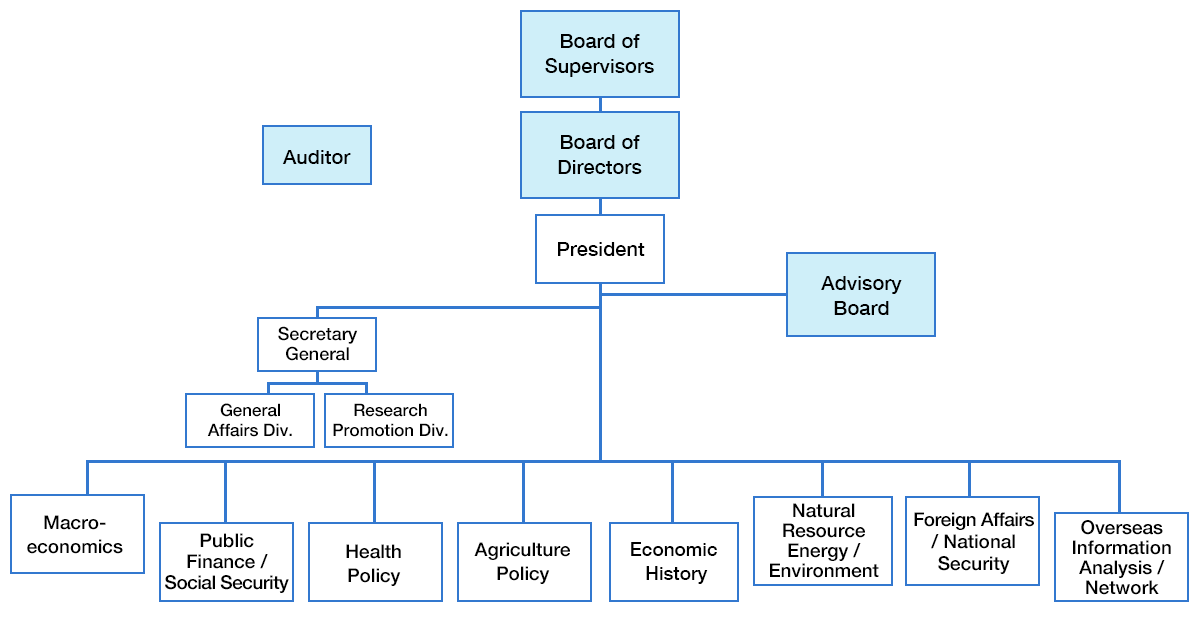Organization


| Chairman of the Board of Supervisors | |
|---|---|
| Fujio MITARAI | Chairman & CEO, Canon Inc. |
| Supervisors (alphabetical) | |
|---|---|
| Shigemitsu MIKI | Honorary Advisor, MUFG Bank, Ltd. |
| Kenji MIYAHARA | Special Adviser, Sumitomo Corporation |
| Hideji SUGIYAMA | President, JIPDEC Ltd. |
| Koichiro WATANABE | Special Advisor, The Dai-ichi Life Insurance Company, Limited |
| President | |
|---|---|
| Toshihiko FUKUI | Former Governor of the Bank of Japan |
| Directors (alphabetical) | |
|---|---|
| Koji FUJIWARA | Special Adviser Mizuho Financial Group |
| Ryozo HAYASHI |
Special Advisor Fellow, Musashino Institute for Global Affairs |
| Akinari HORII |
Special Advisor Former Assistant Governor of the Bank of Japan (International Activities) |
| Kunihiko MIYAKE |
Special Advisor |
| Toshizo TANAKA |
Senior Managing Director Executive Vice President & CFO, Canon Inc. |
| Auditor | |
|---|---|
| Hiroshi UCHIMA | Attorney at Law |
| Advisors (alphabetical) | |
|---|---|
| Fumio HAYASHI | Emeritus Professor, Graduate School of Policy Studies, National Graduate Institute for Policy Studies(GRIPS) |
| Takatoshi ITO | Professor, School of International and Public Affairs, Columbia University and Adjunct Professor, National Graduate Institute for Policy Studies |
| Daisuke KOTEGAWA | Chairman and President of Oita Prefectural College of Arts and Culture |
| Kazumasa KUSAKA | Former Vice‐Minister for International Affairs, Ministry of Economy,Trade and Industry; President, Institute for International Trade and Investment (ITI) |
| Junichi UJIIE | President, Ujiie Research Institute, Ltd. |
IN WITNESS WHEREOF, these Articles of Incorporation have been prepared and signed and sealed by the founder for the purpose of incorporation of the Canon Institute for Global Studies.
December 1, 2008
Fujio Mitarai
Chairman and CEO
Canon Inc.
Founder of the Corporation
30-2 Shimomaruko 3-chome, Ohta-ku, Tokyo, Japan